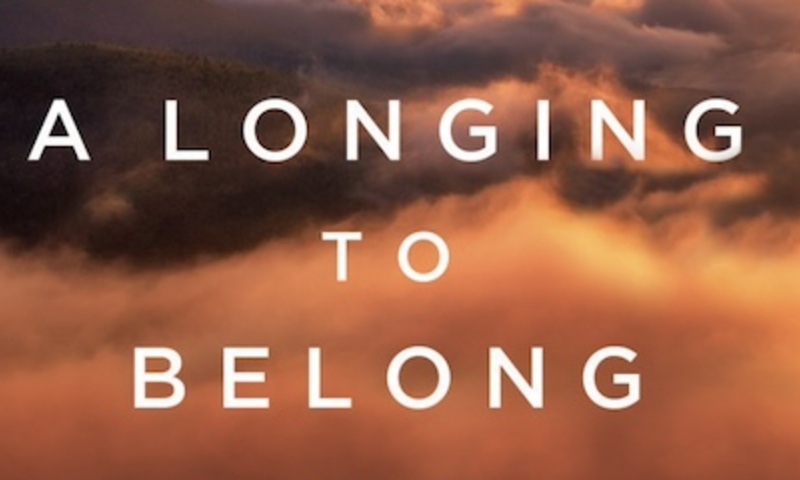This is a Q & A blog post by Biola's Professor of New Testament, Michelle Lee Barnewall. Michelle Lee Barnewall recently published “A Longing to Belong,” which was named a finalist in .
Q: Michelle, word has it that you have a new book out. What is its title, and what is it about?
A: The title is A Longing to Belong, and in the book I offer a different vision of racial relations. The current debate on race focuses on justice. However, even when justice helps us right wrongs, it cannot teach us how to live well with one another. But for Paul and the other New Testament writers, the building of peace and unity among all members was an essential part of being in Christ. However, it seems that we’ve gotten away from this goal.
Real reconciliation can only be achieved in a relational context, and the New Testament speaks volumes about the new community in Christ and what those relationships are to be like. In particular, in the body of Christ we see the often overlooked but very foundational concept of belonging. We were created to be in relationship with one another and in Christ we belong to one another and we belong to God. Understanding what this means deeply impacts how we think about and treat one another, and not just in terms of race but in all our relationships.
Q: Who is your target audience and how will they benefit from the book?
A: I’m hoping that the book would be accessible and useful to a broad range of people, as it is based on my academic research but also written in a very personal manner as it is part memoir.
The goal of the book is to get us to think differently about race and hopefully come to a place where we can all talk constructively together. For example, I try to illustrate how as the body of Christ we transcend race, and yet we are also individuals for whom our race does impact how we experience daily life. Although I realize it is a bit of an ambitious goal for a relatively short book, I want to show the importance of understanding the issue through both ecclesiology and biblical anthropology.
Q: What led you to write this book? How does this book relate to your previous scholarship?
A: I wanted to write the book because I thought this alternative perspective might be helpful to the church. My dissertation was on the body of Christ, and so I approach the issue first from the question of what Paul says about our corporate identity in Christ and our relationships with one another. But my first-hand experience as a racial minority also moves me to consider what the results of my exegesis look like in real life.
Q: The book is different from your other books in that it is much more personal. Can you tell us why you wrote it in that way?
A: Paul’s understanding of the body of Christ and the family of God is intensely relational, and so I think we need to talk about these things in a similar vein. These images are about how we relate to one another because we are all connected in Christ. We are called to do far more than just work together. As a result, I write about my own experiences as a minority, but also what I’ve learned from listening to the experiences of my White colleagues, friends and husband, as well as other minorities. I try to understand these experiences in light of what I think Scripture says about our unity in Christ.
Q: What is the main point you’re trying to make and what do you want your readers to get from the book?
A: That our relational problems must be solved in a relational context that is robustly grounded in both ecclesiology and biblical anthropology.
We need to be careful to form a biblical worldview that doesn’t fall into an either/or type of thinking. It is easy to think either race is central to our identity or it doesn’t matter because it has been transcended in Christ. However, it is more of a both/and. For example, Paul says in Gal. 3:28 that there is “neither Jew nor Greek,” implying that there is a unity in Christ that transcends race. But in other places he recognizes the importance of ethnic and racial identification, such as in Rom. 1:16, when he says that the gospel is given to the “Jew first” and then also to the gentiles. In Rev. 7:9, the worshippers are described as being “from every nation, from all peoples and tribes and languages.” Both of these aspects — the transcendence and importance of individual racial identity — matter, and we run into problems when we focus exclusively on one aspect and neglect the other. We need to incorporate both into our thinking, which means we must hold these ideas in tension. You might say that in the Spirit, we have transcended race because we are new creations, yet at the same time, as parts of God’s creation, our distinctions in the body, including race, still matter.
Q: Can you share an excerpt or two (a paragraph or so) from the book?
A: Although I don’t have room to share any of the stories from the book, here are two short excerpts which talk about our corporate identity and how it integrates with our individual identities in Christ:
We don’t need to choose between our individual identity and being part of a greater community. Nor is one aspect necessarily more important than the other. Instead, I can ponder the mysterious way God made me both a unique self and a self in community. And I’m not alone in thinking this way. Carl Trueman says this is the “quintessential problem of identity in the modern era,” that is, “how can I simultaneously be myself and belong to a larger social group?”
So instead of asking, Does race matter? the better question may be, How does race matter? Does God have a purpose in race and ethnicity, and could that purpose be a key to what kingdom unity is all about? I doubt these questions have easy answers — there rarely are easy answers for these kinds of things. However, I suspect the solution lies somewhere in understanding what it means for a person to be created and loved by God. I am important to God individually in all the ways he has made me. At the same time I am a part of various communities. I am a member of the human race and also the family of God. (pp. 82-83)
As members of Christ’s body, we are different, yet we are one. I find this truth easy to say, but much, much more difficult to live out. I suspect that most of us believe the same thing. Our differences and limitations provide infinite opportunities for misunderstanding, and when sin overtakes us, we descend into objectification, condescension, bitterness, and hatred of one another.
Paul knew firsthand how these obstacles plagued the Christian community. They were there from the start. But he also believed Christ could overcome them. In the kingdom of God, ethnic differences and tensions are opportunities for the transformative power of the gospel to be put on display to a watching world. In the world, differences often lead to conflict, even violence. But in the Spirit-led community, the oneness of believers is a testament to the power of the One who saves them. (pp. 95-96)
Learn more about Biola Professor Michelle Barnewell, or order for purchase on Amazon.
 şÚÝ®ĘÓƵ
şÚÝ®ĘÓƵ

.jpg)


